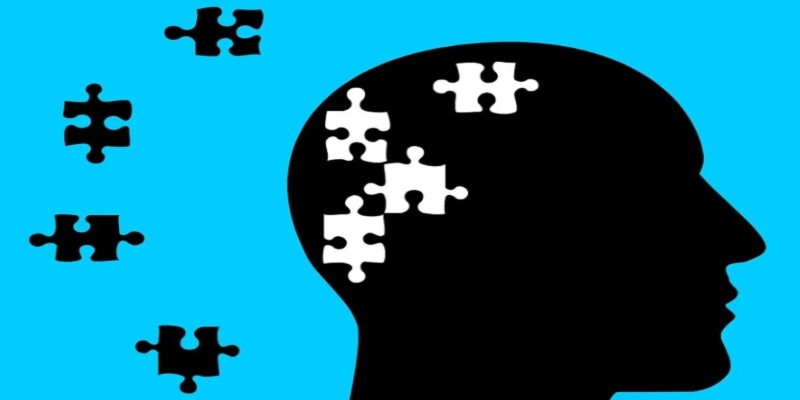Schizophrenia is a complex mental health disorder that often sparks curiosity and concern due to its profound impact on individuals and families. Whether you're someone newly diagnosed, a family member, or simply seeking more knowledge, understanding schizophrenia is vital for grasping its implications. However, when confronted with the subject, it can be hard to know where to start.
What exactly is schizophrenia? How does it manifest? What treatments are available? Inquiries into schizophrenia not only build awareness but also reduce stigma by dispelling common misconceptions. This article explores the key questions to ask when learning about schizophrenia, shedding light on its nature, symptoms, treatment options, and living with the condition.
Understanding schizophrenia is key to providing support and promoting well-being for those affected by this complex mental health condition.
One of the most important inquiries is understanding what schizophrenia is. Schizophrenia is a severe mental health disorder characterized by distortions in thinking, perception, emotions, language, and sense of self. It significantly disrupts an individuals ability to distinguish between what is real and what is not.
The condition is commonly misunderstood as a split or multiple personality disorder, but it is, in fact, an entirely different diagnosis. Schizophrenia affects around 20 million people worldwide, and while it can be chronic, treatments are available to manage its symptoms effectively.
Understanding the causes behind schizophrenia is crucial for comprehending the disorders onset and progression. The exact cause remains unclear, but research suggests a combination of genetic, biological, and environmental factors. Genetic predisposition plays a significant role, with those having a family history of schizophrenia being more susceptible.

Brain chemistry and structure, including neurotransmitter imbalances and structural abnormalities, also contribute to its development. Additionally, prenatal factors like malnutrition or exposure to viral infections during pregnancy, as well as psychosocial stressors like trauma, may trigger the disorder in those already genetically predisposed.
Inquiring about the symptoms is critical for recognizing the condition early. Schizophrenia symptoms can be divided into positive, negative, and cognitive categories. Positive symptoms include hallucinations, delusions, and disorganized thinking. These are experiences that add unusual perceptions or thoughts.
Negative symptoms, on the other hand, involve reduced ability to function normally, such as lack of motivation, social withdrawal, and diminished emotional expression. Cognitive symptoms affect memory and thinking, leading to difficulties in concentration and decision-making. Understanding these symptoms helps in identifying schizophrenia and seeking timely intervention.
The diagnostic process for schizophrenia can be a source of confusion, making it important to ask about the criteria involved. Schizophrenia is typically diagnosed through a thorough evaluation by a mental health professional, which includes clinical interviews, medical history, and psychological assessments.
According to the DSM-5 (Diagnostic and Statistical Manual of Mental Disorders), for a diagnosis, the individual must exhibit at least two of the primary symptomsdelusions, hallucinations, or disorganized speechover a significant period. The process of diagnosis also involves ruling out other conditions like bipolar disorder or substance-induced psychosis. Given the complexity of the disorder, early diagnosis is key to effective management.
Treatment is a central concern for those affected by schizophrenia, so understanding the available options is essential. The primary treatment for schizophrenia involves antipsychotic medications, which help control symptoms by altering brain chemistry. Second-generation antipsychotics, like risperidone and olanzapine, are commonly prescribed due to their fewer side effects compared to first-generation drugs.
Alongside medication, psychotherapy, particularly cognitive-behavioral therapy (CBT), plays a critical role in helping individuals cope with the challenges posed by schizophrenia. Family therapy and support groups also offer valuable resources for both patients and their loved ones. In severe cases, hospitalization might be necessary to stabilize the individual and ensure their safety.
What Are the Side Effects of Treatment?
It is important to ask about the potential side effects associated with schizophrenia treatments, particularly antipsychotic medications. These drugs can have a range of side effects, from weight gain and drowsiness to more severe reactions like tardive dyskinesia, a movement disorder.
While newer medications tend to have milder side effects, finding the right treatment balance can be challenging and often requires careful monitoring. Regular communication with healthcare providers is crucial for managing these side effects and ensuring the treatment remains effective.
One of the most common questions is whether schizophrenia can be cured. Currently, there is no cure for schizophrenia. However, with consistent treatment and support, many people with schizophrenia can lead fulfilling lives. The condition can be managed effectively, allowing individuals to control symptoms and reduce the frequency of episodes.
Long-term treatment typically involves ongoing medication combined with psychosocial support, helping individuals maintain stability and improve their quality of life.
Inquiries regarding support for loved ones are essential in ensuring holistic care. Supporting someone with schizophrenia involves being informed, patient, and empathetic. Education is key; the more you understand the condition, the better you can offer meaningful help.

Encourage treatment adherence and be there to provide emotional support, especially during challenging times. Open communication, while respecting boundaries, can strengthen relationships and build trust. Its also beneficial to seek support groups and counseling for family members, helping them navigate the complexities of living with someone who has schizophrenia.
Understanding the impact of schizophrenia on daily life offers insight into the challenges faced by those living with the disorder. Schizophrenia affects various aspects of life, including work, relationships, and self-care. Social isolation, difficulty in maintaining employment, and struggles with routine tasks are common.
However, with proper treatment, many individuals can regain independence and engage in fulfilling activities. Asking about these impacts helps set realistic expectations and plan strategies for day-to-day management.
Recognizing risk factors and early warning signs can lead to earlier intervention and better outcomes. Family history of schizophrenia, prenatal exposure to infections or malnutrition, and significant life stressors are among the primary risk factors.
Early warning signs might include social withdrawal, unusual behavior, sudden academic or work-related issues, and a decline in self-care. If such signs are identified early, especially in high-risk individuals, seeking professional advice can potentially delay or mitigate the onset of the disorder.
When it comes to schizophrenia, asking the right questions is a crucial step toward understanding and managing this complex mental health condition. From learning about its symptoms and causes to exploring treatment options and daily life impacts, each inquiry contributes to a more comprehensive grasp of the disorder.
Whether you are personally affected or supporting someone who is, staying informed fosters better communication, reduces stigma, and ensures those with schizophrenia receive the care and compassion they deserve. By addressing these inquiries, we can build a more empathetic and supportive environment for everyone navigating the challenges of schizophrenia.

By Sid Leonard/Aug 26, 2024

By Noa Ensign/Sep 04, 2024

By Kelly Walker/Jun 14, 2024

By Maurice Oliver/Aug 29, 2024

By Celia Shatzman/Sep 04, 2024

By Sean William/Sep 03, 2024

By Juliana Daniel/Sep 03, 2024

By Kristina Cappetta/Oct 03, 2024

By Vicky Louisa/Sep 04, 2024

By Alison Perry/Sep 04, 2024

By Rick Novak/Jul 13, 2024

By Madison Evans/Sep 04, 2024